International fee exemptions
International students eligible for Quebec tuition rates
Quebec's Ministère l’Enseignement supérieur (MES) has several categories of international students who are exempt from paying international differential tuition fees.
Deadline to apply
The last day of classes in each term is the deadline for you to request an exemption and submit all supporting documents. Requests that are incomplete at the end of the term or are submitted after the term may not be processed for that term. There is no retroactivity.
Where to submit Documents
Documentation may be submitted to the Birks Student Service Centre at LB-185. Please contact quebec.residency@concordia.ca to ensure that your documents have been received.
Questions?
Please contact quebec.residency@concordia.ca
Who can claim exemptions?
The following international students may be exempt from international differential tuition fees:
Diplomats, consular personnel, accredited representatives or civil servants of a foreign country, the United Nations or one of its organizations, an intergovernmental organization to which Canada belongs, and any member of the staff of the above-listed persons working in Canada in an official capacity and who have obtained an attestation issued by "le Protocole" (Gouvernement du Québec). International students in this category are eligible to pay tuition at the Quebec rate for the sessions indicated on the Protocol letter.
- This attestation is valid for one academic year and must be renewed each year the student attends university;
Required Document: Original letter from the Quebec Protocole Office naming the student and stating the year and session of the exemption.
The spouse and unmarried children of the above-listed persons.
Required Document: Original letter from the Quebec Protocole Office naming the student and stating the year and session of the exemption.
International students whose spouse hold work permits valid for working in Quebec with these conditions or international students, no older than 22 years, whose parents hold work permits valid for working in Quebec with these conditions:
- Closed work permits:
- Case Type must be one of these categories 07, 08, 20, 22, 23, 26, 52 or 53;
- the place of employment must be stated and must be in Quebec;
- the employer must be named.
- Post Graduation Work Permit:
- Case type must be 56 or it must state “Post Graduation Work Permit” or “Permis de travail post diplôme”
- Bridging Open Work Permit;
- Case type must be 27
- Must have a CSQ
For further details and verification, please contact the Office of the Registrar, Quebec.residency@concordia.ca
Required Documents:
- The spouse or parents work permit with the above characteristics;
proof of kinship with the spouse (marriage certificate) or parent (long form birth certificate)
Students who are registered at a university and who have come to Quebec as an exchange student, or as a student participating in a program of cooperation agreed to by the Government of Quebec and which exempts the participants from paying differential fees.
Required Documents: None. Concordia will receive notification directly from the Government of Quebec.
International students who are French citizens (accord France-Québec) and hold a valid French passport, a valid Study Permit and CAQ. The Quebec government has reached an agreement with the government of France regarding French citizens who study in Quebec.
French students studying in an undergraduate program leading to an Undergraduate Certificate or Degree will be charged the same tuition as Canadian students from outside Quebec. Our tuition and fee estimator can provide you with an estimate of what to expect.
French students in an Independent or Qualifying program will be charged the same tuition as Canadian students from outside Quebec but they must have a valid study permit and CAQ as well as the valid French passport in order to benefit from this exemption.
As of Fall 2024, French students in an Undergraduate Certificate or Degree or Independent or Qualifying programs will be charged the tuition rate for Canadian non-Quebec Resident students that was valid in 2023-2024.
French students studying in a graduate program leading to a Graduate Certificate, Graduate Diploma, Masters or PhD will be charged the same tuition as Quebec residents.
Required Document: Valid French passport (pages with photo, names and expiration date) and a valid Study Permit and CAQ.
Here is an outline of how these regulations affects students who are French citizens:
| LEVEL OF STUDIES | PROGRAM | TUITION RATE |
|---|---|---|
| UNDERGRADUATE | Bachelor | Canadian rate |
| Undergraduate Certificate | ||
| Undergraduate Independent | ||
| Undergraduate Visiting | ||
| GRADUATE | Masters | Quebec rate |
| PhD | ||
| Graduate Certificate | ||
| Graduate Diploma | ||
| Qualifying Program | Canadian rate | |
| Graduate Independent | ||
| Graduate Visiting |
Notes:
- Students who studied at Concordia in Winter 2015 and continue their studies in the same Bachelors program will continue to pay tuition at the Quebec rate, in accordance with the pre-2015 France-Quebec agreement. However if they change to a different Bachelors program then they will pay tuition at the Canadian rate.
- Students who are new to Concordia but studied at another Quebec university in the same discipline*1 in Winter 2015 will continue to pay tuition at the Quebec rate, in accordance with the pre-2015 France-Quebec agreement. However if they change to a different Bachelors program then they will pay tuition at the Canadian rate.
*1 The term “discipline” refers to the field of study. — For example, if a French student in a BA Major History in Winter 2015 switches to a BA Honours History in Fall 2015, this student has remained in the same discipline and will continue to pay the Quebec tuition rate until they complete the program. If a French student in a BA Major History in Winter 2015 switches to a BA Major Mathematics in Fall 2015, this student has NOT remained in the same discipline and will pay the Canadian tuition rate until they complete the program.
International students who are francophone Belgian citizens:
The Quebec government has reached an agreement with the government of the francophone community of Belgium regarding francophone Belgian citizens who study in Quebec.
Undergraduate
As of the Fall 2018 session, francophone Belgian students studying in an undergraduate program leading to an Undergraduate Certificate or Degree will be charged the same tuition as Canadian students from outside Quebec. Our tuition and fee estimator can provide you with an estimate of what to expect.
Independent or Qualifying programs
As of the Fall 2018 session, francophone Belgian students studying in an Independent or Qualifying program will be charged the same tuition as Canadian students from outside Quebec but they must have a valid study permit and CAQ as well as the valid Belgian passport and francophone Belgian ID in order to benefit from this exemption.
As of Fall 2024, francophone Belgian students in an Undergraduate Certificate or Degree or Independent or Qualifying programs will be charged the tuition rate for Canadian non-Quebec Resident students that was valid in 2023-2024.
Graduate
As of the Fall 2018 session, francophone Belgian students studying in a graduate program leading to a Graduate Certificate, Graduate Diploma, Masters or PhD will be charged the same tuition as Quebec residents. Our tuition and fee estimator can provide you with an estimate of what to expect.
| LEVEL OF STUDIES | PROGRAM | TUITION RATE |
|---|---|---|
| UNDERGRADUATE | Bachelor | Canadian rate |
| Undergraduate Certificate | ||
| Undergraduate Independent | ||
| Undergraduate Visiting | ||
| GRADUATE | Masters | Quebec rate |
| PhD | ||
| Graduate Qualifying Program | ||
| Graduate Independent | Canadian rate | |
| Graduate Visiting |
Required Documents:
- Valid Belgian passport (pages with photo, names and expiration date);
- Valid Belgian ID Card identifying you as a francophone Belgian (see images below)
- Valid Study Permit and CAQ
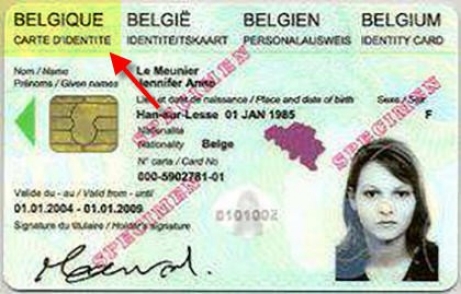 Exemple d’un citoyen belge francophone
Exemple d’un citoyen belge francophone
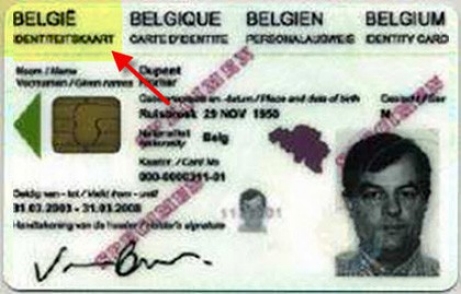 Exemple d’un citoyen belge néerlandophone
Exemple d’un citoyen belge néerlandophone
OR
- Valid Belgian passport (pages with photo, names and expiration date);
- High School Leaving Certificate (CESS) or Bachelors or Masters granted by a francophone institution in Belgium.*
*see images and list below
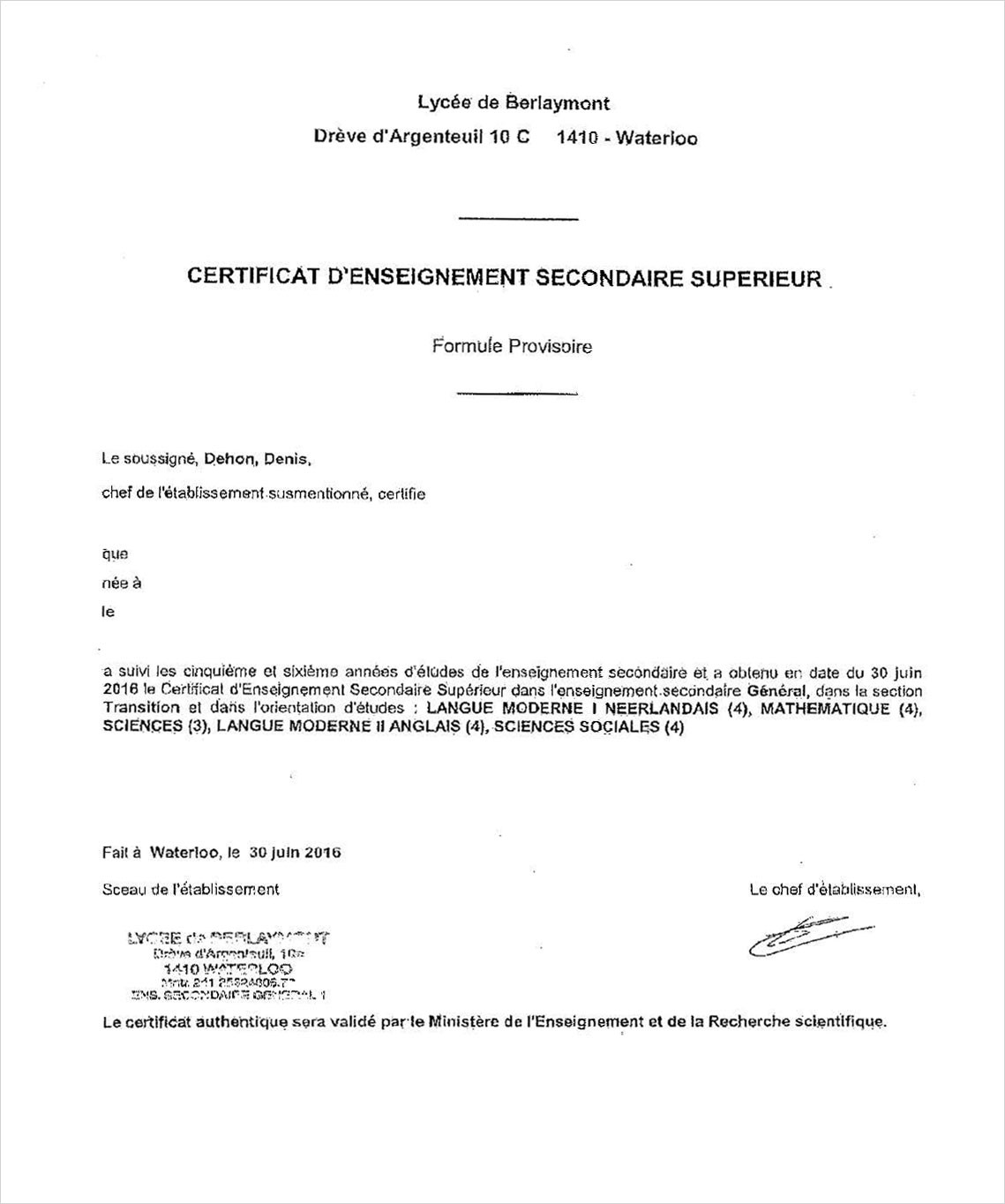 Exemple d’un certificat d’enseignement secondaire supérieur (CESS) belge
Exemple d’un certificat d’enseignement secondaire supérieur (CESS) belge
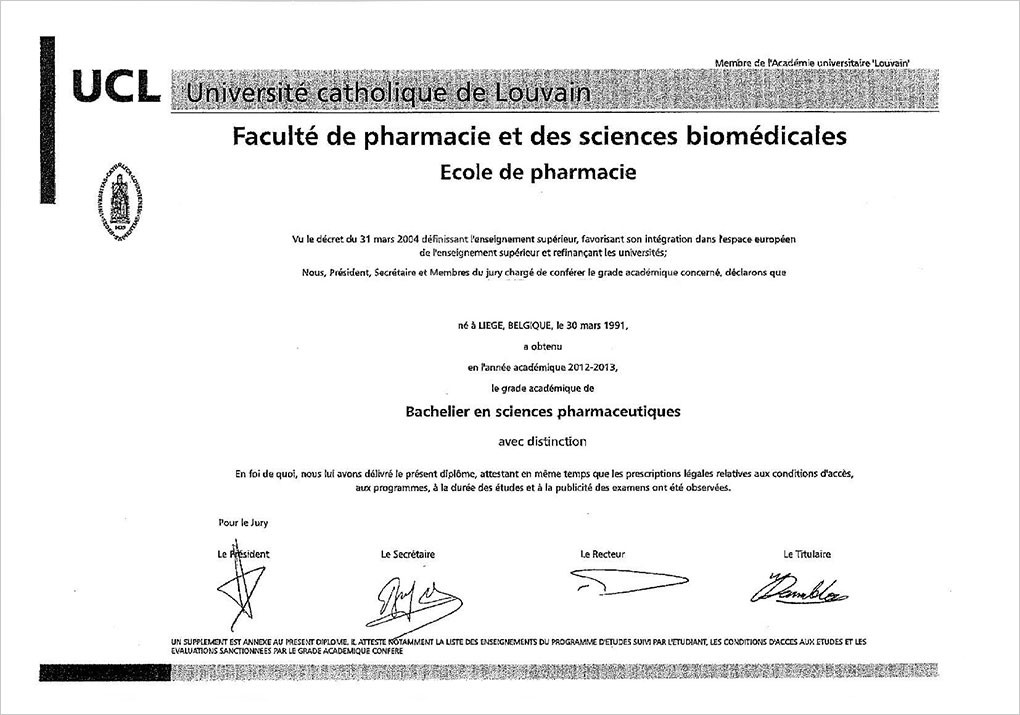 Exemple d’un diplôme de baccalauréat universitaire
Exemple d’un diplôme de baccalauréat universitaire
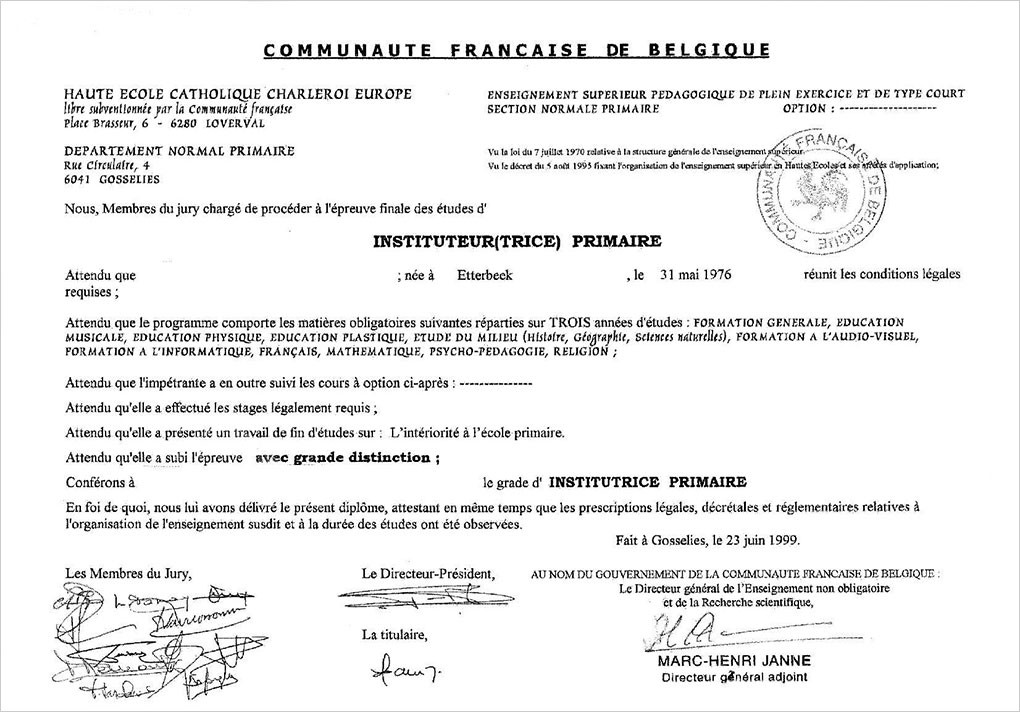 Exemple d’un diplôme d’une Haute École
Exemple d’un diplôme d’une Haute École
Etablissements
Les Universités sont les établissements suivants :
- L'Université de Liège;
- L'Université catholique de Louvain;
- L'Université libre de Bruxelles;
- L'Université de Mons;
- L'Université de Namur;
- L'Université Saint-Louis - Bruxelles.
Les Hautes Ecoles sont les établissements suivants :
- La Haute Ecole de la Province de Liège;
- La Haute Ecole Louvain en Hainaut;
- La Haute Ecole provinciale de Hainaut - Condorcet;
- La Haute Ecole Léonard de Vinci;
- La Haute Ecole libre mosane;
- La Haute Ecole de Namur-Liège-Luxembourg;
- La Haute Ecole Galilée;
- La Haute Ecole Ephec;
- La Haute Ecole en Hainaut;
- La Haute Ecole Charlemagne;
- La Haute Ecole «Groupe ICHEC - ISC Saint-Louis - ISFSC»;
- La Haute Ecole Francisco Ferrer;
- La Haute Ecole de Bruxelles;
- La Haute Ecole Albert Jacquard;
- La Haute Ecole libre de Bruxelles - Ilya Prigogine;
- La Haute Ecole Paul-Henri Spaak;
- La Haute Ecole Robert Schuman;
- La Haute Ecole de la Ville de Liège;
- La Haute Ecole Lucia de Brouckère;
- La Haute Ecole de la Province de Namur.
Les Ecoles supérieures des Arts sont les établissements suivants :
- Le Conservatoire royal de Bruxelles;
- Arts2;
- Le Conservatoire royal de Liège;
- L'Ecole supérieure des Arts Saint-Luc de Liège;
- L'Ecole nationale supérieure des Arts visuels de La Cambre;
- L'Institut des Arts de Diffusion;
- L'Ecole supérieure des Arts Saint-Luc de Bruxelles;
- L'Ecole supérieure des Arts Institut Saint-Luc à Tournai;
- L'Ecole supérieure des Arts - Ecole de Recherche graphique;
- L'Académie royale des Beaux-Arts de la Ville de Bruxelles - Ecole supérieure des Arts;
- L'Académie des Beaux-Arts de la Ville de Tournai;
- L'Ecole supérieure des Arts de la Ville de Liège;
- L'Institut national supérieur des Arts du Spectacle et des Techniques de Diffusion;
- L'Institut supérieur de Musique et de Pédagogie;
- L'Ecole supérieure des Arts de l'image LE 75;
- L'Ecole supérieure des Arts du Cirque.
Les Etablissements de promotion sociale considérés, pour leurs sections d'enseignement supérieur, comme établissements d'enseignement supérieur sont les suivants :
- Institut d'enseignement de promotion sociale de la Communauté française (IEPSCF) d'Arlon-Musson à 6700 Arlon;
- Ecole industrielle et commerciale à 6700 Arlon;
- Institut d'enseignement de promotion sociale de la Communauté française (IEPSCF) d'Ath-Flobecq à 7800 Ath;
- Institut supérieur Plus Oultre à 7130 Binche;
- Institut d'enseignement de promotion sociale de la Communauté française (IEPSCF) de Braine-l'Alleud à 1420 Braine-l'Alleud;
- Centre de formation pour les secteurs infirmier et de santé à 1 200 Bruxelles;
- Centre d'études supérieures d'optométrie appliquée à 1080 Bruxelles;
- Cours industriels à 1000 Bruxelles;
- Ecole de promotion sociale Saint-Luc à 1060 Bruxelles;
- Ecole pratique des hautes études commerciales (EPHEC) à1200 Bruxelles;
- Enseignement de Promotion et de Formation Continue 1 (EPFC) à 1050 Bruxelles;
- Enseignement de Promotion et de Formation Continue 2 (EPFC) à 1050 Bruxelles;
- Enseignement de Promotion et de Formation Continue 3 (EPFC) à 1050 Bruxelles;
- Enseignement de Promotion et de Formation Continue 5 (EPFC) à 1050 Bruxelles;
- Enseignement de Promotion et de Formation Continue 7 (EPFC) à 1050 Bruxelles;
- Enseignement de Promotion et de Formation Continue 8 (EPFC) à 1050 Bruxelles;
- Enseignement de Promotion et de Formation Continue 9 (EPFC) à 1050 Bruxelles;
- Institut des carrières commerciales, à 1000 Bruxelles;
- Institut Diderot à 1000 Bruxelles;
- Institut d'optique Raymond Tibaut à 1050 Bruxelles;
- Institut d'urbanisme et de rénovation urbaine à 1060 Bruxelles;
- Institut Jean-Pierre Lallemand à 1050 Bruxelles;
- Institut Machtens - enseignement communal de promotion sociale à 1080 Bruxelles;
- Institut Roger Guilbert à 1070 Bruxelles;
- Institut Roger Lambion à 1070 Bruxelles;
- Institut supérieur de formation continue à 1040 Bruxelles;
- Institut technique supérieur Cardinal Mercier à 1030 Bruxelles;
- Centre de formation professionnelle des Femmes prévoyantes socialistes à 6000 Charleroi;
- Collège technique des Aumôniers du travail à 6000 Charleroi;
- Institut provincial supérieur des sciences sociales et pédagogiques à 6000 Charleroi;
- Institut d'enseignement technique commercial à 6000 Charleroi;
- Institut provincial supérieur industriel du Hainaut à 6000 Charleroi;
- Cours industriels et commerciaux de Couillet à 6010 Couillet;
- PROM SOC Supérieur Mons Borinage, à 7000 Mons ;
- Institut d'enseignement de promotion sociale de la Communauté française (IEPSCF) de Verviers-Plombières-Limbourg-Pepinster à 4820 Dison;
- Institut d'enseignement de promotion sociale de la Communauté française (IEPSCF) de Dour à 7370 Dour; 45° Cours industriels et commerciaux à 7190 Ecaussinnes;
- Enseignement de promotion sociale d'Enghien (EPSE) à 7850 Enghien;
- Ecole d'arts et métiers à 6560 Erquelinnes;
- Institut d'enseignement de promotion sociale de la Communauté française (IEPSCF) d'Evere-Laeken à 1140 Evere;
- Institut d'enseignement de promotion sociale de la Communauté française (IEPSCF) de Fléron-Chênée 4623 Fléron;
- Institut d'enseignement de promotion sociale de la Communauté française (IEPSCF) de Frameries à 7080 Frameries;
- Institut provincial d'enseignement de promotion sociale à 4040 Herstal;
- Institut provincial d'enseignement de promotion sociale à 4500 Huy;
- Institut d'enseignement de promotion sociale de la Communauté française (IEPSCF) de Mons (Jemappes) à 701 2 Jemappes;
- Institut provincial des arts et métiers du Centre à 7100 La Louvière;
- Institut Provincial d'Enseignement de Promotion Sociale de Wallonie Picarde à 7900 Leuze-en-Hainaut;
- Institut d'enseignement de promotion sociale de la Communauté française (IEPSCF) de Libramont-Bertrix à 6800 Libramont;
- Cours de promotion sociale Saint-Luc à 4000 Liège;
- Cours pour éducateurs en fonction à 4030 Liège;
- Ecole de commerce et d'informatique - enseignement de promotion sociale à 4000 Liège;
- Institut provincial d'enseignement de promotion sociale de Liège à 4020 Liège;
- Institut de formation continuée - enseignement de promotion sociale à 4000 Liège;
- Institut de technologie - enseignement de promotion sociale à 4020 Liège;
- Institut des langues modernes - enseignement de promotion sociale à 4000 Liège;
- Institut des travaux publics - enseignement de promotion sociale à 4000 Liège;
- Institut Saint-Laurent - enseignement de promotion sociale à 4000 Liège;
- Institut d'enseignement de promotion sociale de la Communauté française (IEPSCF) de Marche-en-Famenne à 6900 Marche-en-Famenne;
- Institut Reine Astrid (IRAM) à 7000 Mons;
- Institut d'enseignement de promotion sociale de la Communauté française (IEPSCF) de Morlanwelz-Mariemont à 7140 Morlanwelz;
- Institut d'enseignement de promotion sociale de la Communauté française (IEPSCF) de Mouscron-Comines à 7700 Mouscron;
- Collège technique Saint-Henri à 7700 Mouscron;
- Institut d'enseignement de promotion sociale de la Communauté française (IEPSCF) de Namur (cadets) à 5000 Namur;
- Ecole industrielle et commerciale de la ville de Namur à 5000 Namur;
- Ecole supérieure des affaires à 5000 Namur;
- Institut libre de formation permanente à 5000 Namur; 81° Institut provincial de formation sociale à 5000 Namur;
- Institut technique - promotion sociale à 5000 Namur;
- Institut provincial de promotion sociale et de formation continuée à 1400 Nivelles;
- Centre d'enseignement supérieur de promotion sociale et de formation continuée du Brabant wallon à 1348 Ottignies-Louvain-la-Neuve;
- Institut d'enseignement de promotion sociale de la Communauté française (IEPSCF) de Peruwelz à 7600 Peruwelz;
- Institut d'enseignement de promotion sociale de la Communauté française (IEPSCF) de Sivry-Rance à 6470 Rance;
- Centre d'enseignement supérieur pour adultes à 6044 Roux;
- Institut technique et agricole de la Province de Hainaut à 7060 Soignies;
- Institut d'enseignement de promotion sociale de la Communauté française (IEPSCF) de Thuin à 6530 Thuin;
- Institut d'enseignement de promotion sociale de la Communauté française (IEPSCF) de Tournai-Antoing-Templeuve à 7500 Tournai;
- Institut d'enseignement de promotion sociale de la Communauté française (IEPSCF) d'Uccle-Anderlecht-Bruxelles à 1180 Uccle;
- Cours de promotion sociale d'Uccle à 1180 Uccle;
- Institut d'enseignement de promotion sociale - orientation commerciale à 4800 Verviers;
- Institut d'enseignement de promotion sociale - orientation technologique à 4800 Verviers;
- Institut d'enseignement de promotion sociale de la Communauté française (IEPSCF) de Waremme à 4300 Waremme;
- Institut d'enseignement de promotion sociale de la Communauté française (IEPSCF) de Colfontaine à 7340 Wasmes;
- Institut de formation supérieure de Wavre à 1300 Wavre.
Students admitted to a Quebec university and whose country has a fee remission agreement with the Quebec Government.
Please consult the following Ministry PDF document for a list of eligible countries and international organizations. Pays et organisation internationale signataires d’une entente internationale en matière de mobilité étudiante à l’ordre universitaire
Inquiries and applications for an exemption should be made directly to the students' own Ministry of Education prior to leaving their home country. In some cases, when the person is in Canada, it may be possible to apply for an exemption at his or her Embassy or Consulate in Canada or in the United States. For up to date contact information from the different eligible countries, please consult the following Ministry PDF document. Exemptions des droits de scolarité supplémentaires accordées par le gouvernement du Québec - Liste des gestionnaires par pays ou organisation internationale
Here is the form that students should fill out and submit to their country's representative:
Formulaire de candidature pour l’attribution des exemptions des droits de scolarité supplémentaires
Required Documents: None. Concordia will receive notification directly from the Government of Quebec.
Students who work for, or who are dependants of individuals employed by one of the international non-governmental organizations outlined in Annexe III of the Politique relative aux droits de scolarité exigés des étudiants étrangers par les universités du Québec
Required Document: Original letter from the Quebec Protocole Office naming the student and stating the year and session of the exemption.
Under certain conditions, students who have obtained Convention Refugee status may be eligible for an exemption from the differential fees for International students. Depending on the documentation submitted, they may be eligible to pay either the Quebec tuition rate or the Canadian non-Quebec rate. To pay the Quebec tuition rate, students must submit a CSQ and a document delivered by the Immigration and Refugee Board of Canada or Citizenship and Immigration Canada formally recognizing their status of refugee, "protected person" or "person to be protected".
Required Documents: a) CSQ and b) a document delivered by the Immigration and Refugee Board of Canada or Citizenship and Immigration Canada formally recognizing their status of refugee, "protected person" or "person to be protected". Convention refugees are required to hold a valid Study Permit for the duration of their studies, up until they become a Permanent Resident of Canada.
Students who are authorized to submit a request for permanent residency status in Canada and have a certificat de sélection du Québec (CSQ) belonging to one of the following categories:
- Regroupement familial (family reunification)
- Travailleur: Aide-familiale résidente (live-in caregiver)
- Membres de la famille d’un réfugié (members of the family of a refugee)
- Cas humanitaire (humanitarian reasons)
I – CSQ (Certificat de sélection du Québec)
The student must submit a CSQ containing the following information:
- Family reunification. Family member or spouse selected in the category of family reunification and indicating a commitment of sponsorship.
- I5 or ID = live-in caregiver.
- RA = members of the family of a refugee. Members of a family in Québec who are not themselves recognized as refugees but who are included in a request for permanent residency status of their relative who is a recognized refugee.
- H* (H followed by a number from 1 – 6 or a letter from A – O or R) = humanitarian reasons
II - Letter from IRCC (Immigration, Refugees and Citizenship Canada)
Except for the category RA which only requires submission of a CSQ, students must present a letter from IRCC, addressed to the student or addressed to the student’s Sponsor (and naming the student), which indicates that they are eligible to apply for permanent resident status within Canada under one of the following categories:
- Family Reunification
- Humanitarian Cases
- Live-in Caregiver
- Refugee
Applicants should address documentation to the Office of the Registrar, Government Reporting Unit.
Documentation may be submitted to the Birks Student Service Centre at LB-185.
For further information please email Quebec.residency@concordia.ca
International students who have completed an engineering degree outside Quebec and are required by the Order of Engineers of Quebec to take certain courses in order to be recognized as an engineer by the Order of Engineers of Quebec.
Required documents:
- Letter from the Ordre des Ingénieurs du Québec (OIQ) listing the courses must be taken in order to qualify as an engineer with the OIQ.
- Transcript demonstrating that the student holds an engineering degree from a post-secondary institution outside Quebec.